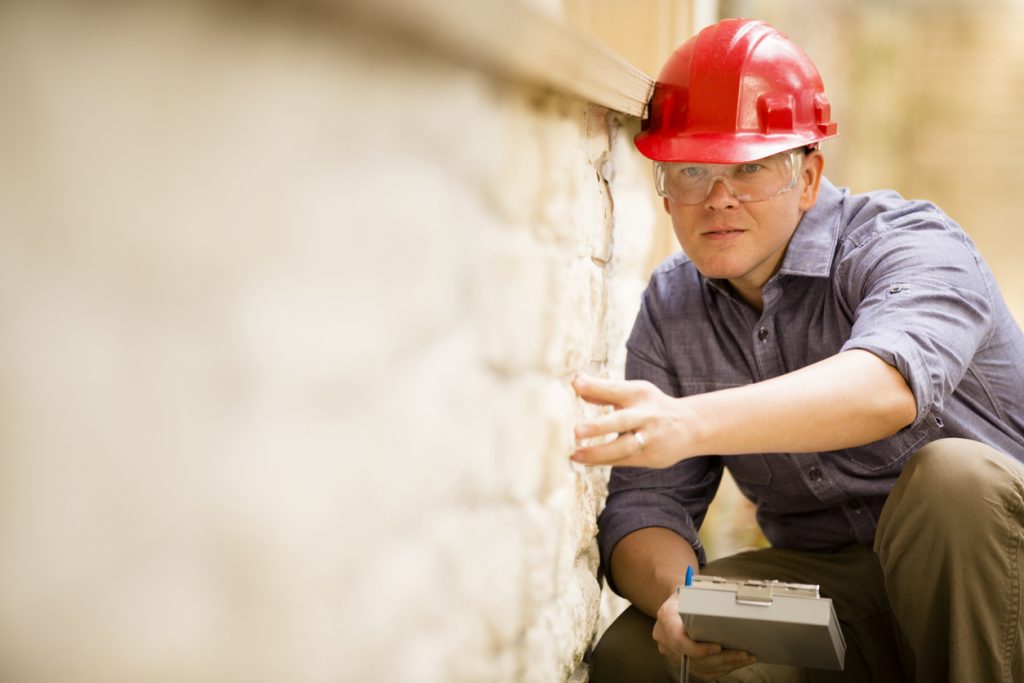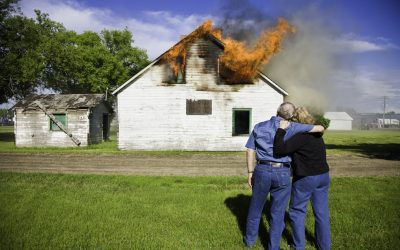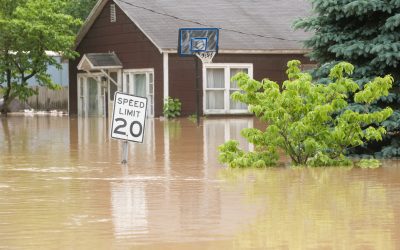Can You Say No to a Home Insurance Inspection?
A home insurance inspection is one of those things most homeowners don’t think about until it shows up unexpectedly. Maybe your insurer sent a notice about an upcoming inspection, or a representative showed up at your property. Whatever the situation, the question many homeowners ask is: “Can I say no to a home insurance inspection?”
In this blog, we’ll break down what a home insurance inspection is, why it happens, what your rights are, and the potential risks of refusing one. If you’re navigating your policy or claim in Florida, this information could help you make smarter, more informed decisions.
What Is a Home Insurance Inspection?
A home insurance inspection is a physical evaluation of your property performed either before a new insurance policy is issued or during your existing policy period. Insurance companies use these inspections to assess property condition, risk factors, and verify the information provided on your application or renewal.
An inspector may look at:
- The condition of your roof
- Electrical and plumbing systems
- HVAC systems and appliances
- The overall structure and foundation
- Safety features like smoke detectors, handrails, and fences
- Potential hazards like overhanging trees, pool enclosures, or outdated wiring
The results can affect your insurance premium, eligibility, or coverage limits.
Why Do Insurance Companies Require a Home Insurance Inspection?
1. Risk Assessment
Insurers want to evaluate the potential for future claims. A worn-out roof, for example, increases the risk of leaks and water damage—two of the most common and costly insurance claims.
2. Policy Validation
Companies conduct a home insurance inspection to verify that the details provided during your application are accurate. If your home is misrepresented, they may revise or cancel your coverage.
3. Premium Adjustments
Insurers use inspection results to adjust premiums based on the property’s current condition and risk exposure. If your home is well-maintained, you might qualify for discounts. On the flip side, risks like an aging roof could increase your rates.
Can You Refuse a Home Insurance Inspection?
Here’s the truth: you can technically refuse, but there are consequences.
Yes, You Can Say No — But There’s a Catch
While you’re not legally obligated to allow a home insurance inspection, your insurance company is also not obligated to insure your property if you don’t cooperate. Refusing an inspection could lead to:
- Policy cancellation
- Non-renewal
- Limited coverage or increased premiums
- Difficulty finding another insurer willing to write a policy
Why Insurers May Cancel Coverage After Refusal
A refusal can make your property appear to be a higher risk. The insurer may assume that you’re hiding damage or risks that could result in costly claims later. It’s often seen as a red flag.
Bottom Line: Saying “no” is your right, but it may jeopardize your policy.
What Happens During a Home Insurance Inspection?
Many homeowners panic when they hear the word “inspection,” assuming it will be invasive or judgmental. But most inspections are fairly straightforward and designed to protect both you and the insurer.
Here’s What to Expect:
- The inspector will arrive at your scheduled time or provide notice
- They’ll take photos of the interior and exterior of your property
- They may ask about upgrades, renovations, or known issues
- The process typically takes 30 minutes to an hour
Some insurers may request a drive-by inspection or use a third-party service to take aerial drone photos—especially for roofs.
Pro Tip: Make sure your home is clean, accessible, and safe. Small issues like clutter or blocked access could influence the inspection report.
What to Do If You’re Uncomfortable With the Inspection
If you’re hesitant about letting someone inspect your property, you have a few options:
1. Ask for More Information
Request the inspector’s name, the purpose of the inspection, and a breakdown of what areas will be examined. A legitimate company will have no problem being transparent.
2. Request to Reschedule
If the timing is bad or you need more preparation, ask to reschedule. Most insurers will accommodate within reason.
3. Hire a Public Adjuster
If you’re concerned that the inspection could lead to unfair rate increases or policy changes, consider hiring a public adjuster to represent your interests and ensure the process is fair.
Benefits of Cooperating with a Home Insurance Inspection
While the idea of an inspection may sound like a hassle, cooperating with your insurer can actually work in your favor.
1. Prevent Coverage Gaps
Ensuring your property is correctly documented means you’re properly insured—not over- or under-covered.
2. Lower Premiums
If the inspection finds that your home has new upgrades, safety features, or is in good condition, you may be eligible for insurance discounts.
3. Identify Risks Early
The inspection could help identify potential safety or maintenance issues that you weren’t aware of—giving you the opportunity to fix them before they become expensive problems.
When Are Home Insurance Inspections Most Common in Florida?
Florida homes are particularly vulnerable to wind, hurricane, and flood damage, which is why insurers often require more thorough inspections. Common situations include:
- New Policy Applications
- Policy Renewals (especially after major storms)
- Switching Insurance Companies
- Filing Major Claims
- After a Home Purchase or Renovation
In South Florida and coastal areas, roof condition is one of the most heavily scrutinized factors during a home insurance inspection.
How to Prepare for a Home Insurance Inspection
Want to make a good impression and avoid disputes? Here are a few simple tips:
- Clean and declutter all inspection areas
- Ensure smoke detectors and security systems are functional
- Trim trees and clear gutters
- Show documentation of any repairs, upgrades, or maintenance
- Be ready to explain any existing damage or pending repairs
Can a Bad Home Insurance Inspection Result in Higher Premiums?
Yes. If the inspection reveals issues such as:
- An aging or damaged roof
- Exposed wiring or outdated electrical systems
- Water damage or mold
- Structural problems
- Missing safety features like railing or fire extinguishers
Your insurer may respond by:
- Raising your premium
- Requiring repairs or upgrades before policy renewal
- Placing exclusions on certain coverages (e.g., no coverage for water damage)
- Canceling or non-renewing your policy
What to Do If You Disagree with the Inspection Results
Disagreements happen. If you believe your home insurance inspection was inaccurate or unfair:
1. Request a Copy of the Report
Ask your insurer for the full inspection report so you can review the findings.
2. Gather Your Own Evidence
Take your own photos, collect repair receipts, and consult with contractors if needed.
3. Hire a Public Adjuster
A licensed public adjuster can help you challenge incorrect findings, provide an independent evaluation, and negotiate with your insurer on your behalf.
Conclusion: Cooperate Smartly with a Home Insurance Inspection
So, can you say no to a home insurance inspection? Technically, yes. But in practice, it can put your coverage at risk. The smarter move is to cooperate while staying informed and prepared. Understanding what inspectors look for and how it affects your policy gives you the power to protect your property and your finances.
If you’re in Florida and have questions about your policy or feel your insurance company is treating you unfairly after an inspection, Care Public Adjuster is here to help. We advocate for homeowners like you and make sure you’re treated fairly every step of the way.



